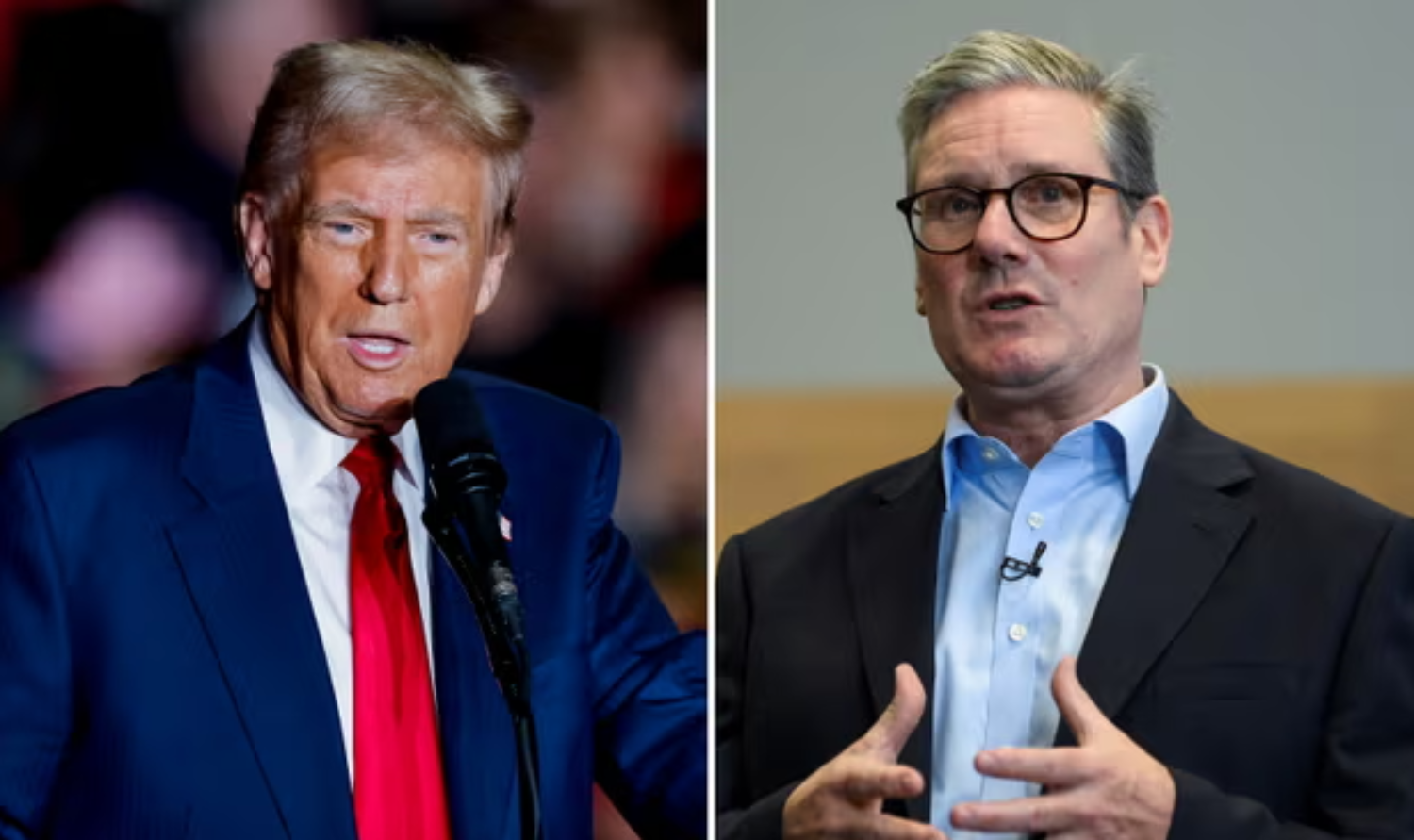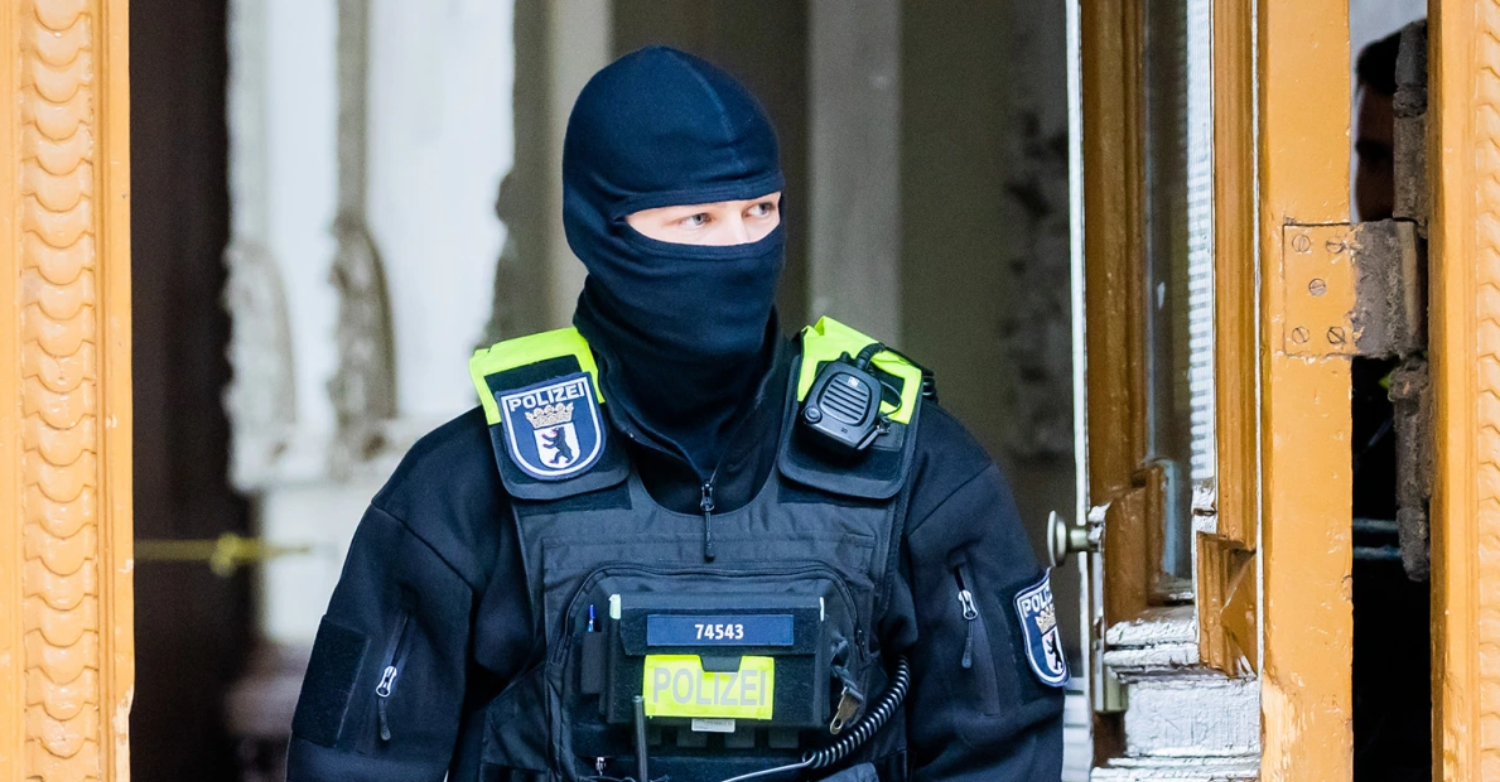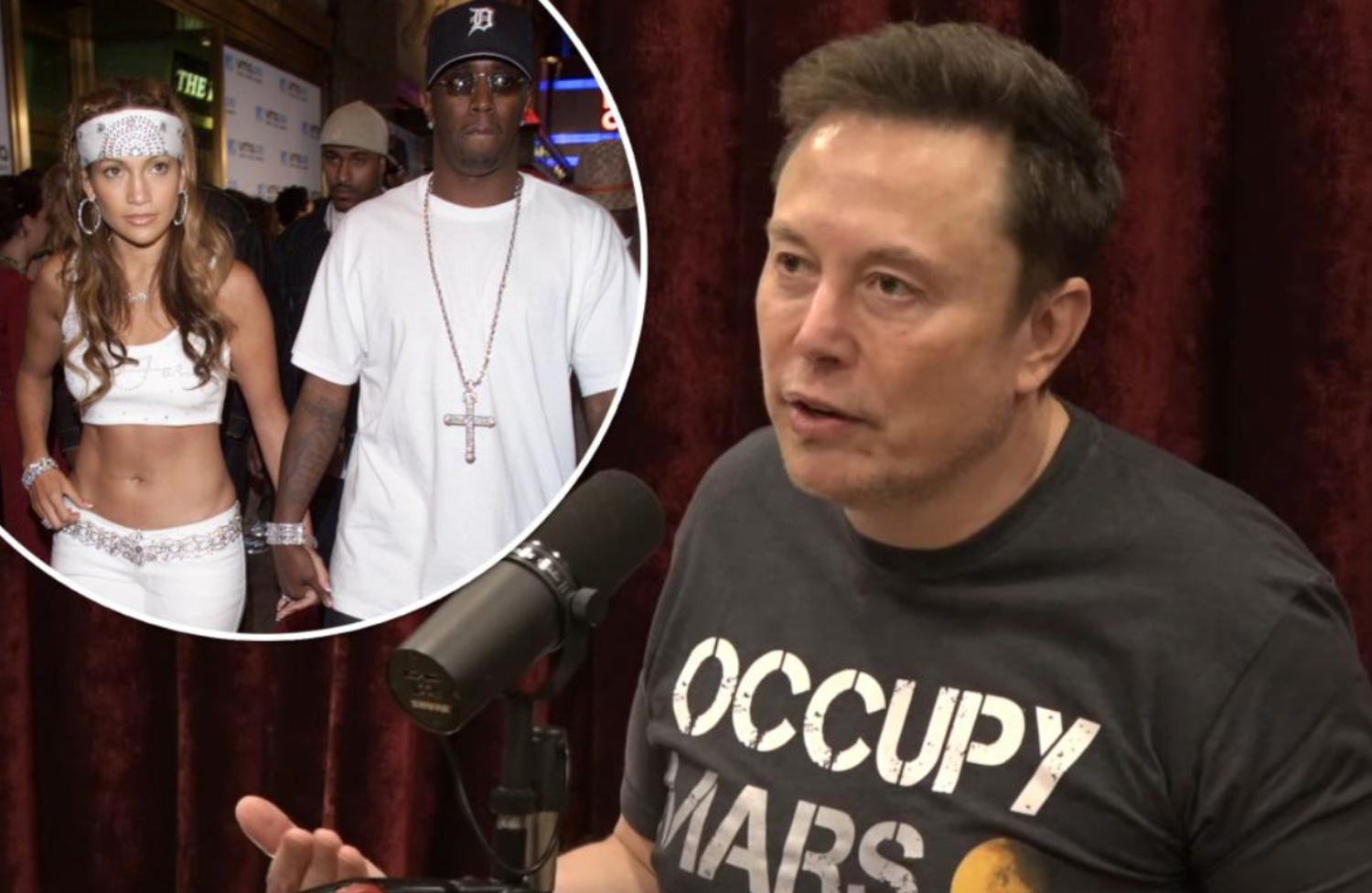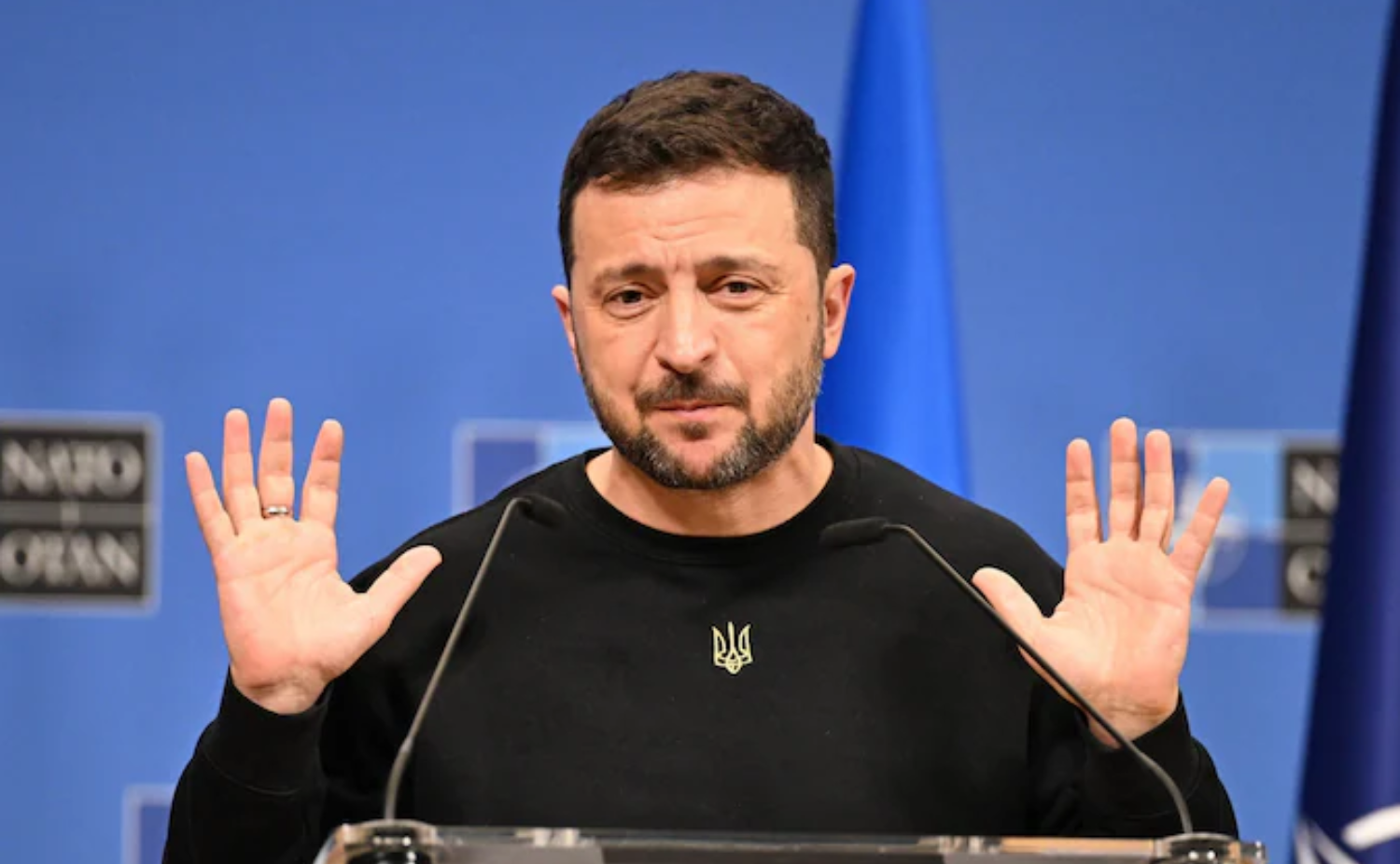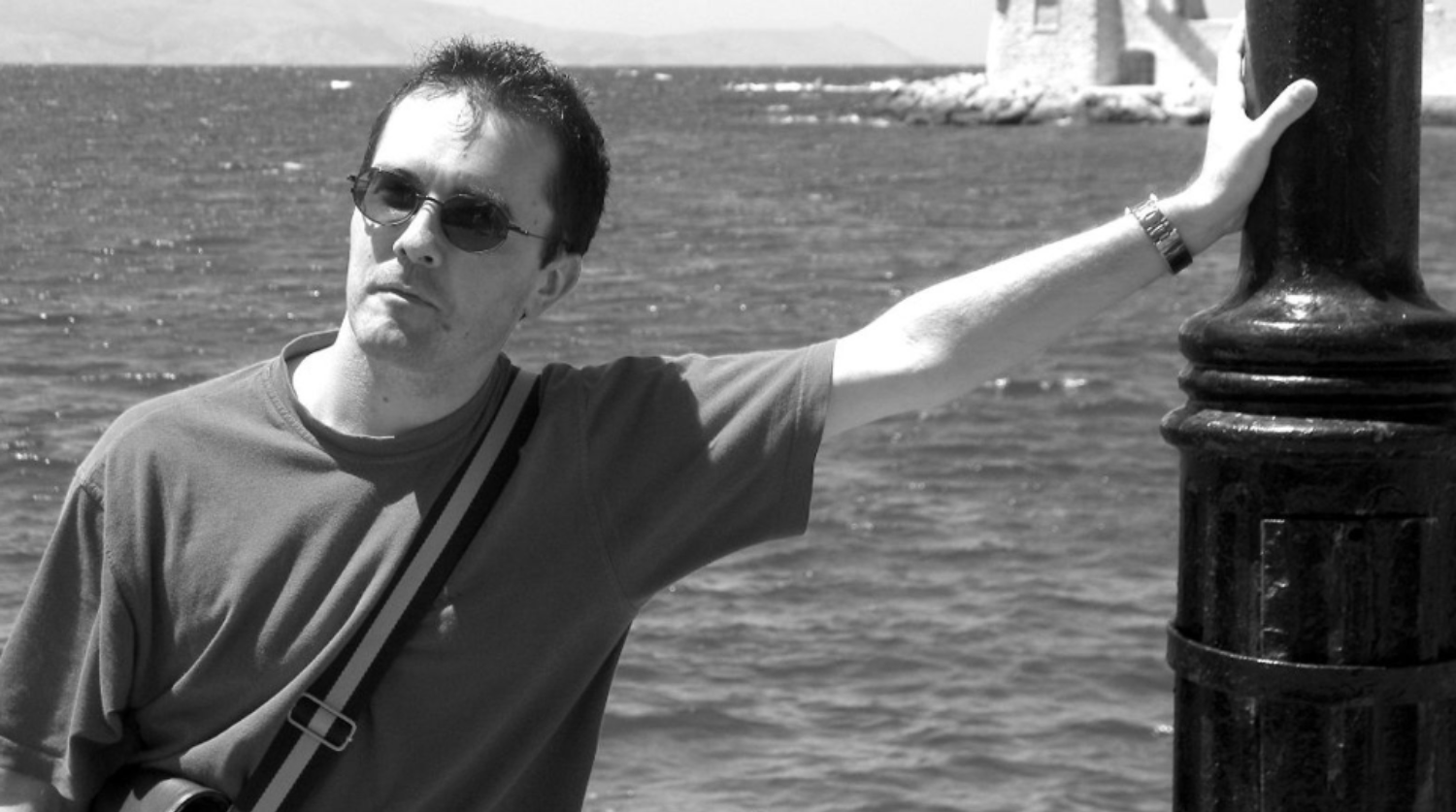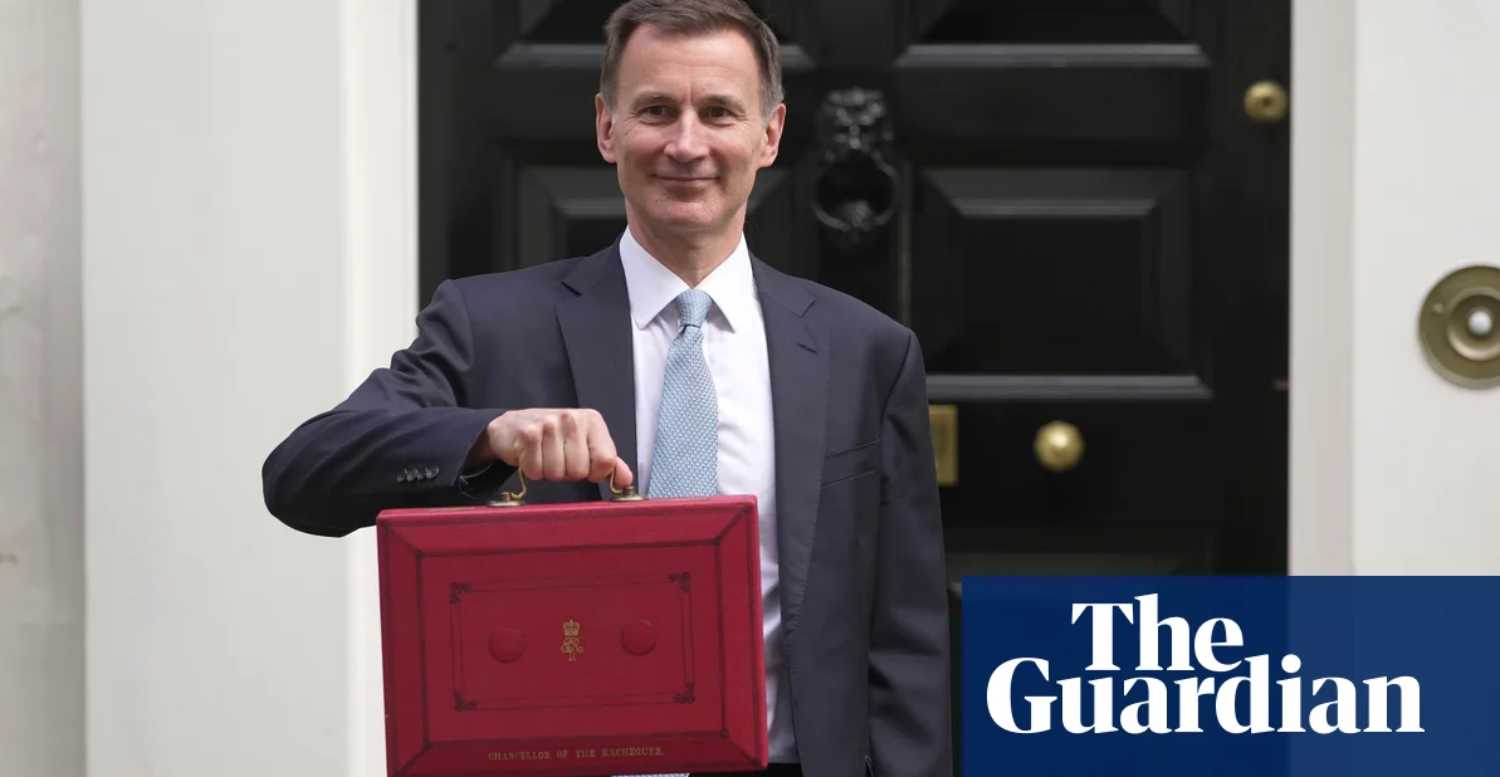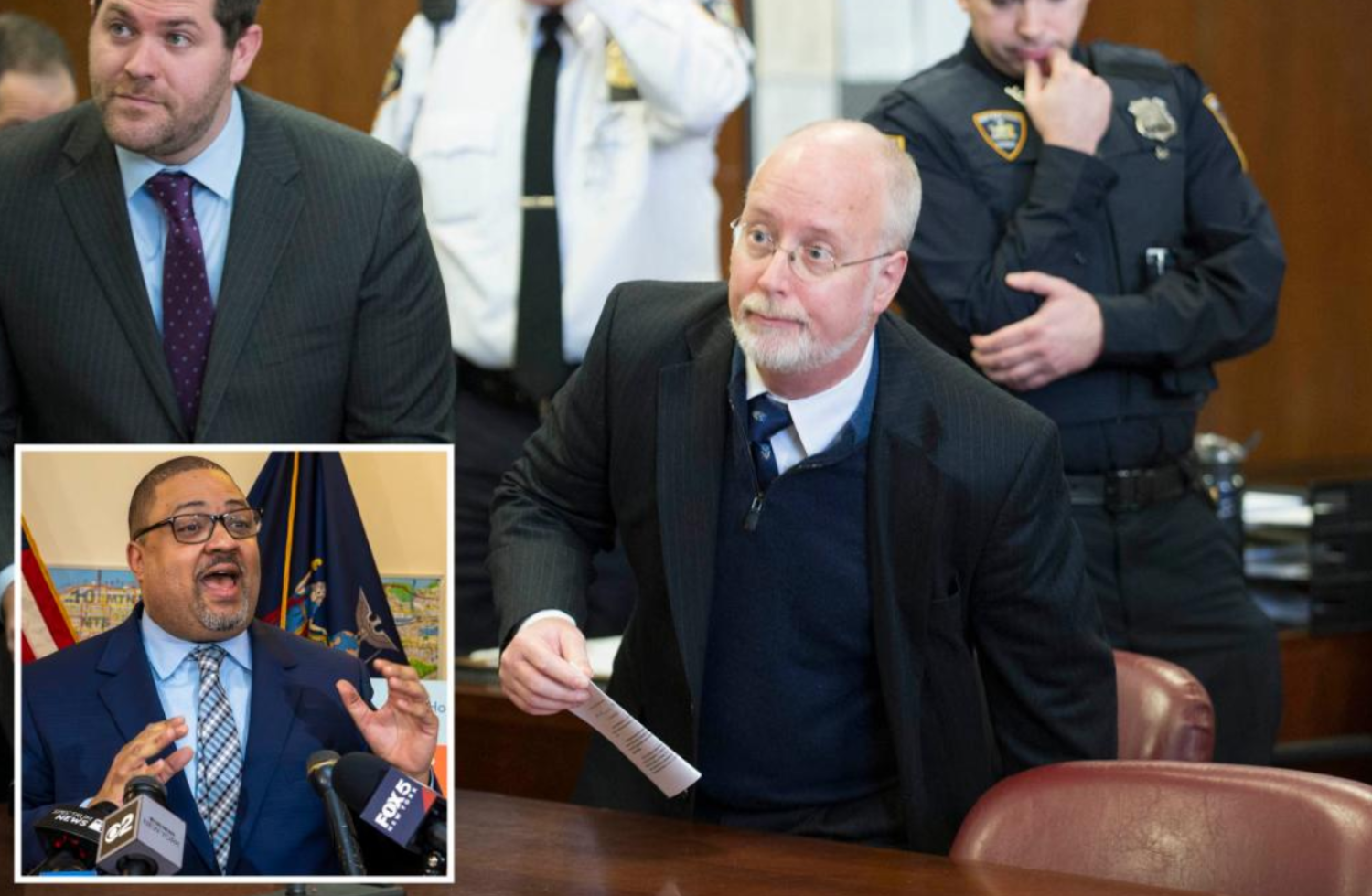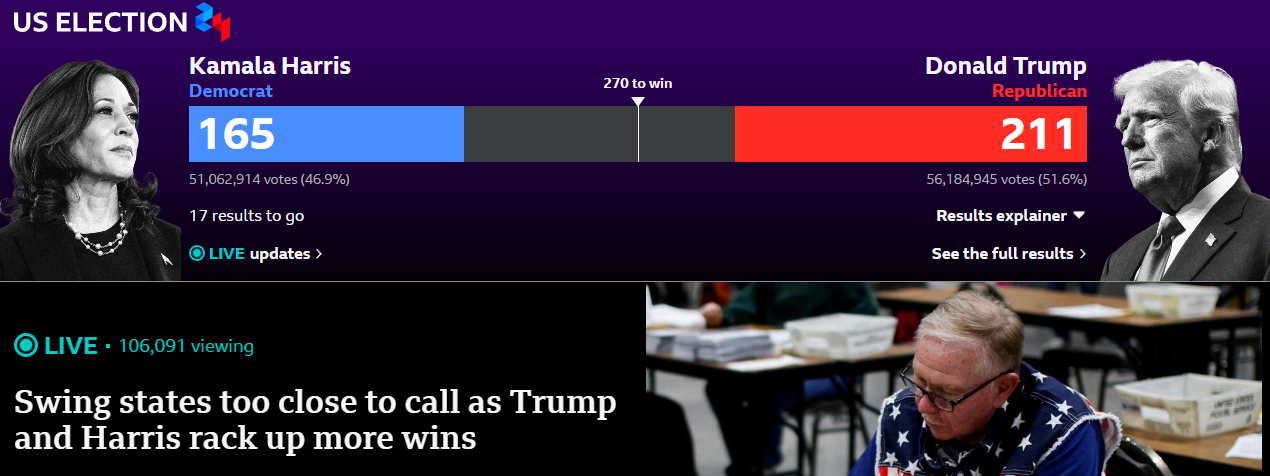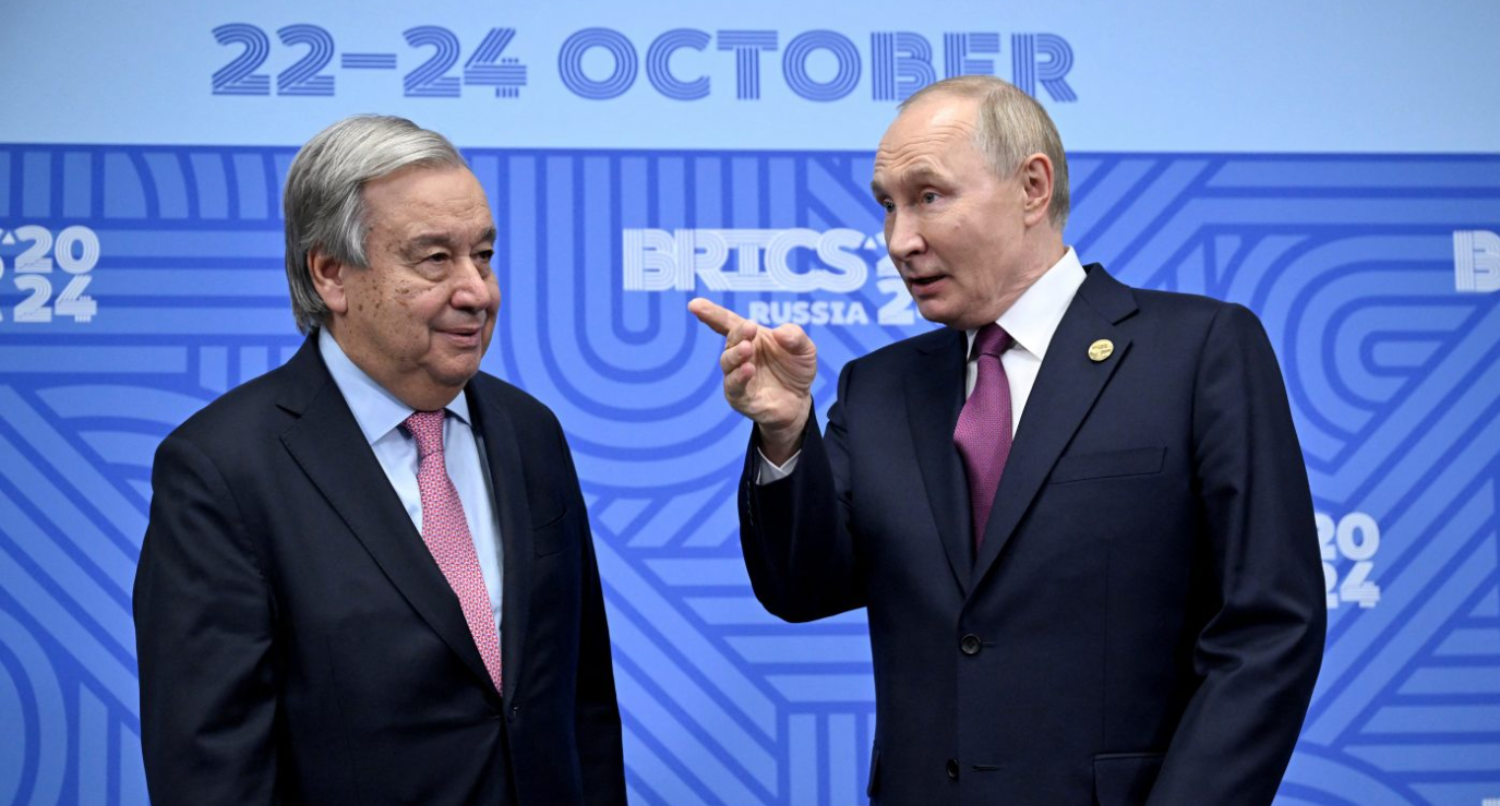-
Posts
10,746 -
Joined
-
Last visited
Content Type
Events
Forums
Downloads
Quizzes
Gallery
Blogs
Everything posted by Social Media
-
Shortly after Donald Trump secured a second presidential term, a Telegram account linked to Iran's Islamic Revolutionary Guard Corps (IRGC) shared a video threatening his life. Bisimchi Media, an account associated with the IRGC on the platform, posted a disturbing video depicting Trump in the crosshairs of a sniper and appearing to spit up blood. This ominous message is just the latest in a string of warnings from Iran’s IRGC, a military force that reports directly to Supreme Leader Ali Khamenei. "The video ends by showing an injured Trump with the text “we will finish the job”." Trump has been a central target of the IRGC since he ordered a 2020 airstrike that killed Soleimani near Baghdad International Airport. The assassination, justified by Trump as a “decisive defensive action to protect U.S. personnel abroad,” was a historic moment that heightened tensions between the U.S. and Iran. In retaliation, Khamenei has released videos that simulate assassination scenarios targeting Trump, and the Iranian government has vowed revenge on all U.S. officials connected to the decision to kill Soleimani. The U.S. government recently informed Trump’s team of continued Iranian threats against him. This warning has led to requests for enhanced security measures around the former president, including military air support and increased protective restrictions at his residences. The Biden administration condemned any plot on Trump’s life as an “act of war,” underscoring the high stakes and persistent security risks surrounding Trump as he re-enters the political spotlight. Based on a report by The Gazette 2024-11-08
-
Prime Minister Anthony Albanese has announced a plan to introduce legislation that would ban children under 16 from using social media platforms, a measure aimed at protecting the mental health of young Australians. Albanese stated on Thursday that the government would hold social media companies responsible for enforcing the restriction, while children and their parents would not face penalties if they were found to be in violation. “Social media is doing harm to our kids, and I’m calling time on it,” Albanese declared, adding, “I want parents to be able to say: ‘Sorry, mate, it’s against the law.’” Prime Minister Albanese disclosed that the cabinet had agreed on 16 as the minimum age for social media use. This threshold is stricter than the 14-year-old age limit proposed by South Australian Premier Peter Malinauskas. Albanese has scheduled a national cabinet meeting with premiers and chief ministers to discuss a unified age restriction, with legislation anticipated next year. Albanese emphasized that concerns over youth social media use have become the “number one discussion” among parents. He acknowledged that the policy may not be flawless, comparing it to existing underage drinking laws that, while not foolproof, provide a protective framework. “We don’t pretend that you can get a 100 per cent outcome here,” he remarked, arguing that the ban is a worthwhile pursuit even if some young people manage to circumvent it. Communications Minister Michelle Rowland described the proposed ban as “world-leading,” highlighting that no other country has enacted similar regulations. If implemented, Australia would pioneer this type of social media restriction, which reflects the government’s commitment to tackling the complexities of youth mental health in the digital age. Based on a report by Sydney Herald 2024-11-08
-
Donald Trump's return to political prominence is already putting a strain on the longstanding “special relationship” between the US and the UK, as his views on Britain’s new Prime Minister, Keir Starmer, reveal ideological differences. According to sources familiar with Trump’s private conversations, he has described Starmer as “very left-wing,” which signals an emerging rift that could challenge the traditionally close ties between the two nations. Donald Trump Jr tells @danriversitv exclusively that the US-UK special relationship is 'certainly not' off to a 'great start' if Trump becomes president, following controversy over the Labour Party sending volunteers to the US to help the Harris campaign Historically, the “special relationship,” a term coined by Winston Churchill, has withstood political differences between leaders of the two nations. For example, former Labour Prime Minister Tony Blair famously supported Republican President George W. Bush’s post-9/11 military response, despite their differing political orientations. However, the situation between Trump and Starmer could prove different, with early signs suggesting the relationship may be characterized by levels of tension rather than unity. For Starmer, who campaigned on promises to resist populism, aligning with Trump could present challenges both domestically and internationally. Nevertheless, Starmer’s administration has publicly expressed willingness to work with Trump’s government. The prime minister quickly offered his congratulations following Trump’s victory, and Starmer’s spokesperson cited recent communication with Trump’s team. Starmer and Foreign Secretary David Lammy, despite their previous criticisms of Trump, began reaching out to the new US administration before the UK election. Their efforts included contact with Trump’s running mate, JD Vance. Starmer also personally called Trump following an incident in July, and they reportedly shared a constructive dinner in New York, after which Trump told insiders they were “friends.” In the UK’s Parliament, the tensions were evident. During a recent session, new Conservative leader Kemi Badenoch highlighted the irony of Labour’s prior criticisms of Trump. She remarked, “I’m very sure that President Trump will soon be calling to thank him for sending all of those North London Labour activists to campaign for his opponent.” Trump, in his usual style, reflected on his relationship with Starmer: “I have to be nice, right?” he said. “But I actually think he’s very nice, I think. He ran a great race. He did very well. It’s very early, but he’s popular and I’ll be seeing him.” Based on a report by Bloomberg | X 2024-11-08
-

Trump Declares Victory and Promises a "Golden Age" for America
Social Media replied to Social Media's topic in World News
unattributed image with unattributed claims removed along with replies and an off topic post @beautifulthailand99 -
On election night, the US Space Force planned to launch an unarmed Minuteman III intercontinental ballistic missile, testing the nation’s nuclear deterrent at a time when tensions with Russia and the Middle East are high. This missile test, scheduled years in advance, is intended to affirm the United States’ preparedness in maintaining its nuclear forces. According to Air Force Global Strike Command, the launch aims to "demonstrate the readiness of US nuclear forces and provide confidence in the lethality and effectiveness of the nation’s nuclear deterrent." Although the test was set to coincide with Election Day, officials stressed that the timing was purely coincidental. As per an agency statement to the California-based Lompoc Record, “The election had nothing to do with its scheduling.” Launches of this kind are usually held in early November, with last year’s test taking place on November 1. The launch was scheduled for shortly after 11 p.m. PST from Vandenberg Space Force Base in California. The LGM-30G Minuteman III ICBM serves as the land-based component of the United States’ nuclear arsenal, with around 400 of these missiles on standby across the country, according to the Air Force. In line with established international protocols, the Hague Code of Conduct and Russia had been notified of the test in advance. This test comes on the heels of Russia’s recent large-scale nuclear exercises. Just a week ago, Russian President Vladimir Putin directed a massive nuclear drill simulating the deployment of Moscow’s own ballistic missile systems. The exercise stirred unease reminiscent of the Cold War era, though Putin assured the world that Russia’s nuclear arsenal would only be deployed under “extremely exceptional measures,” emphasizing that his country is not seeking a “new arms race.” However, Putin also issued a warning directed at the United States and NATO, stating that Russia would consider using nuclear force if the country faced an attack by a non-nuclear power that is supported by a nuclear-armed state. This declaration seemed to address the United States and NATO allies directly, particularly those that continue to support Ukraine, where conflict has persisted since Russia’s 2023 invasion. As geopolitical tensions escalate, the United States' Minuteman III test serves as a reminder of the ongoing reliance on nuclear deterrence in a world where diplomatic stability is increasingly fragile. Based on a report by NYP 2024-11-07
-
German police have apprehended eight suspected members of a far-right militant group, accused of plotting to overthrow government authority in Saxony and other parts of eastern Germany. Prosecutors disclosed Tuesday that the group, identified as the Sächsische Separatisten, or Saxonian Separatists, held racist, antisemitic, and apocalyptic views. The group reportedly consists of around 15-20 individuals, including minors and adolescents, all unified by their disdain for Germany’s liberal democratic structure. The public prosecutor’s office noted, “Its members are united in a profound rejection of the liberal democratic order and believe that Germany is nearing ‘collapse.’” Authorities allege that the Saxonian Separatists were planning to establish a regime inspired by National Socialism in parts of eastern Germany, with a blueprint for “governmental and societal structures” that would emulate elements of the Nazi era. Authorities revealed chilling plans for ethnic cleansing, noting that “unwanted groups of people are supposed to be removed from the area by means of ethnic cleansing.” This extreme objective has led to widespread alarm, sparking one of the largest security operations against far-right extremism in recent years. The eight men were detained in separate locations across Saxony, with the alleged ringleader arrested in Poland. Over 450 police officers and special forces took part in a coordinated sweep of 20 properties in connection with the arrests, searching for evidence of the group’s activities and intentions. The prosecutor’s office reported that since the group’s inception in 2020, members have been continuously preparing for what they believe to be an inevitable and violent regime change. The suspects, including those arrested, reportedly took part in paramilitary training, practicing urban warfare tactics, weapons handling, and other combative skills in full combat gear. The group also acquired military-grade equipment, including camouflage fatigues, combat helmets, gas masks, and bulletproof vests, further underscoring their commitment to a militant agenda. Authorities have targeted several additional suspects linked to the group, though these individuals have not been detained. The operation is the latest in a series of German crackdowns on far-right factions intent on destabilizing the government. This is not the first time German authorities have uncovered such plots. In 2022, a far-right group known as the Reichsbürger was accused of planning to storm the German parliament in Berlin, with the goal of arresting lawmakers and installing a new regime. Reports indicated that this group had hoped to negotiate a post-coup arrangement with Russia. For years, German government and security officials have raised alarms about the mounting threat from far-right extremists who seek to dismantle the country’s democratic foundations. These recent arrests serve as yet another indication of the ongoing danger posed by extremist factions in Germany and the need for vigilant counterterrorism efforts. Based on a report by NBC 2024-11-07
-
Elon Musk recently took a jab at Jennifer Lopez, questioning her credibility after she voiced her opposition to Donald Trump in the upcoming presidential election. Musk, known for his controversial opinions, shared his thoughts while discussing political endorsements with Joe Rogan on "The Joe Rogan Experience" podcast. The conversation followed Lopez’s emotional speech at a Las Vegas rally supporting Vice President Kamala Harris, where she urged voters to choose a candidate other than Trump. During the discussion, Musk brought up Lopez’s past relationship with Sean “Diddy” Combs, who faces serious legal allegations. Lopez dated Combs from 1999 to 2001, a period that included a high-profile Times Square club shooting in which Lopez was questioned but later released without charges. Musk questioned why Lopez was now warning people against Trump but remained silent about her former boyfriend, Diddy, who faces multiple accusations. “J.Lo was like his ex-girlfriend, and it’s like now deciding she’s warning people against Trump,” Musk stated on the podcast. “How many people did she warn against Diddy, right? Oh zero, okay. Maybe we shouldn’t trust her opinion.” Rogan added to Musk's point, questioning Harris’ reliance on celebrity endorsements, many of whom have past social or business connections to Diddy. "It’s peculiar that so many who frequented his gatherings are now outspoken supporters of Harris," Rogan commented, casting doubt on the motives behind these endorsements. He suggested that people in the entertainment industry may have known about Diddy’s alleged misconduct but turned a blind eye, adding, “Clearly, he was doing it for his own jollies too; there was something sick about it.” Musk further claimed, “People in the music entertainment industry had to know that Diddy was like abusing, you know, kids basically, and yet they still fed him kids. Like where’s the accountability? They had to know.” After the interview, Rogan went on to endorse Trump for the 2024 election, an endorsement he had held off on until now. The podcast host recently spoke with Trump himself in an October 25 interview. The comments by Musk and Rogan contrast with Lopez’s recent public statements on the campaign trail. During her rally appearance, Lopez defended Puerto Rico in response to a comedian’s insult of the U.S. territory, describing it as “a floating island of garbage.” She also conveyed her vision for a future that does not include Trump as president, sharing, “I believe in the power of women. I believe that women have the power to make the difference in this election. I believe in the power of Latinos. I believe in the power of our community. I believe in the power of all our votes.” Lopez’s relationship with Diddy has come under renewed scrutiny since his recent legal troubles surfaced. The rapper is currently being held at Brooklyn’s Metropolitan Detention Center awaiting trial on multiple charges, including sex trafficking, racketeering, and transportation for prostitution. Diddy has pleaded not guilty to these accusations, which include an alleged sexual assault of a 13-year-old girl on the same night he was seen in a public altercation with Lopez. The nature of their past relationship, especially considering these allegations, raises questions for some about the extent of her knowledge of his alleged actions. As Diddy’s trial approaches, Lopez has remained silent about her ex’s current legal situation. The media spotlight continues to focus on Lopez’s public endorsements and her call to action for Latino and female voters, leaving many to wonder about the complexities of her personal history with the music mogul. Diddy, facing grave charges, will remain in custody until his trial, set to begin on May 5, 2025. The exchange between Musk, Rogan, and Lopez highlights the intersection of celebrity influence, political endorsements, and public opinion. While Musk and Rogan criticize her for not speaking out against Diddy, Lopez maintains her position, urging her supporters to vote for a candidate who reflects her vision for the country’s future. Based on a report by NYP 2024-11-07
-
Following Donald Trump’s election win, Ukrainian President Volodymyr Zelensky expressed hope that Trump’s leadership could bring peace to Ukraine amid its ongoing war with Russia. Zelensky voiced appreciation for Trump’s "peace through strength" philosophy, suggesting that it could help achieve a “just peace” in the region. He reiterated Ukraine's reliance on bipartisan support from Washington, emphasizing the importance of continued U.S. backing in the fight against Russian aggression. Trump's previous remarks had included a promise to end the war if elected, alongside an acknowledgment of Zelensky as “one of the greatest salesmen I’ve ever seen.” Reactions to Trump’s declared victory began to surface globally, with Israeli Prime Minister Benjamin Netanyahu quickly offering congratulations. Netanyahu, referring to the election as "history’s greatest comeback," welcomed Trump's return as a “new beginning for America” and a reaffirmation of the strong alliance between Israel and the U.S. Hungarian Prime Minister Viktor Orban, who has often praised Trump as a “good friend,” celebrated the election results as a “beautiful victory” in a post featuring Hungarian and American flag emojis. Orban’s support echoed broader sentiments in parts of Europe as other leaders cautiously weighed in. French President Emmanuel Macron extended his willingness to work with Trump, referencing a similar cooperative approach from his prior term. Macron and German Chancellor Olaf Scholz agreed on the need to build a “more sovereign” Europe in response to shifting U.S. policies. Scholz emphasized the importance of U.S.-German collaboration, particularly for their citizens’ “well-being.” Italy’s Prime Minister Giorgia Meloni reinforced the “unbreakable alliance” between Italy and the U.S., highlighting shared values and historic ties. NATO Secretary-General Mark Rutte extended his congratulations to Trump, noting that the Alliance faces significant global challenges, including a “more aggressive Russia,” terrorism, and intensified competition with China. Rutte assured Trump of NATO's ongoing commitment to counter these threats, underscoring the importance of unity in deterring aggression and safeguarding both security and economic interests. In Brussels, European Commission President Ursula von der Leyen also congratulated Trump, describing the U.S. and the EU as "more than just allies." Meanwhile, in the UK, politician Nigel Farage celebrated Trump’s win, calling it “the most incredible political comeback of our lifetime.” Farage shared a post online with a photo taken after an assassination attempt against Trump in July, with the words, “He’s done it again.” Russian official Dmitry Medvedev offered a different perspective, suggesting that Trump’s aversion to unnecessary spending could benefit Russia. Medvedev, a former Russian president, said that Trump’s “businessman” mindset made him “mortally dislike spending money” on what he considered wasteful international alliances. In Asia, China’s Foreign Ministry spokeswoman Mao Ning expressed hope for "peaceful coexistence" with the U.S., stating that China would continue to engage with the U.S. based on “mutual respect” and “win-win cooperation.” El Salvador’s President Nayib Bukele sent well wishes to Trump with a public message of congratulations, while Dutch politician Geert Wilders echoed similar sentiments, urging Trump and the U.S. to “never stop fighting.” While many leaders offered measured responses, some officials in Asia, including those in Taiwan and the Philippines, expressed confidence in their ongoing relations with the U.S. regardless of the election outcome. India’s Foreign Minister, Subrahmanyam Jaishankar, reflected on the U.S.'s shift toward isolationism, remarking that, regardless of who holds power, America may no longer maintain the same level of global dominance and generosity seen in past decades. Based on a report by Daily Telegraph 2024-11-07
-
A 24-year-old man from Columbia, Tennessee, Skyler Philippi, is facing charges after allegedly planning an attack on an energy substation in Nashville. Authorities say Philippi, who holds white supremacist beliefs, intended to disrupt the power supply and destabilize society by attaching explosives to a drone and targeting critical infrastructure. Philippi was arrested after an FBI investigation uncovered his plot to use a weapon of mass destruction. He now faces charges of attempted destruction of an energy facility and attempted use of a weapon of mass destruction. Following his initial court appearance, Philippi remains in custody, with another court date set for November 13. He could face life imprisonment if convicted. According to investigators, Philippi’s motivations stem from accelerationism, an extremist ideology that advocates for societal chaos to bring about change, with the ultimate goal of establishing a racially homogeneous state. This ideology has been linked to past white supremacist terrorist incidents, including the 2019 mosque shootings in Christchurch, New Zealand, which killed 51 people. FBI sources reported that Philippi expressed his views in messages, asserting that drastic actions were needed to achieve such a vision. Initially, Philippi discussed with FBI sources his intention to carry out a mass shooting at a YMCA in Columbia, Tennessee. However, he later concluded that this would not create enough impact to advance his agenda. "If you want to do the most damage as an accelerationist, attack high economic, high tax, political zones in every major metropolis," Philippi reportedly wrote, according to court documents released Monday. By September, he showed an undercover FBI agent a manifesto in which he wrote, "radical armed struggle is the only end to protecting and preserving our folk." Deputy Attorney General Lisa Monaco condemned Philippi's intentions, stating, "As alleged in today’s charges, Skyler Philippi, a man dedicated to white supremacist ideology and the destruction of our critical infrastructure, planned to attack Nashville’s power grid using a drone carrying an explosive device." FBI Director Christopher Wray added that Philippi was “driven by a racially motivated violent extremist ideology,” and that his attack could have left thousands without power, affecting hospitals and other critical facilities. Leading up to the planned attack, Philippi and undercover FBI agents drove to the targeted substation to conduct reconnaissance. During the drive, he ordered C-4 explosives from the agents and later purchased black powder, which could be used in pipe bombs. The FBI revealed that Philippi had taken steps to conceal his identity, discussing the use of disguises, leather gloves, and ill-fitting shoes. Philippi was ultimately arrested on November 2 by undercover agents who had been posing as his co-conspirators. The FBI reported that the drone was armed and powered up at the time of his arrest. Earlier that day, Philippi had participated in a ritual honoring the Norse god Odin, telling agents, “this is where the New Age begins,” and expressing his belief that his actions would be remembered in the "annals of history." Philippi’s interest in Norse mythology reflects a trend seen in far-right circles, where pagan folklore often blends with extremist ideologies, in part due to Adolf Hitler's fascination with Norse mythology. When arrested, Philippi wore a homemade shirt that read “Death for Odin,” according to the criminal complaint. Based on a report by NBC 2024-11-07
-
In Paris, eight individuals are now on trial, accused of involvement in the tragic murder of French teacher Samuel Paty, whose beheading by an Islamic extremist in 2020 sent shockwaves through France. The charges include terrorism-related offenses, with the accused being friends of the assailant as well as others who allegedly spread misinformation about Paty’s teaching methods. Five of the accused are currently in custody and appeared in a secure glass enclosure within the courtroom, while three others under judicial supervision were seated separately outside the glass box. A central figure in the trial is Brahim Chnina, the father of a teenage girl who claimed she had been excluded from Paty's class for objecting to the caricatures. Chnina, a 52-year-old Muslim, is accused of sending a series of messages condemning Paty and sharing the address of the school in Conflans Saint-Honorine, the Paris suburb where Paty taught. During investigations, it emerged that Chnina’s daughter, who was 13 at the time, had fabricated her account; she had not attended the class where the caricatures were shown. Based on a report by Sky News 2024-11-07
-
Keir Starmer, the British prime minister and a leader who values rule of law and a moderate approach, now faces an unexpected challenge: Donald Trump’s return to the political stage. For Starmer, Trump’s unpredictable and controversial approach may create a nightmare scenario, contrasting starkly with the British prime minister’s principles and posing a diplomatic challenge. "I don’t think you will find a leader around the world less like Donald Trump than Keir Starmer," noted Tom Baldwin, a biographer of Starmer. Indeed, while Starmer champions a calm and measured leadership style, Trump’s brash and combative nature presents a tough obstacle. Throughout his first presidency, Trump challenged U.S. allies nearly as much as he confronted adversaries. His actions often stirred tensions over issues like trade and defense spending, and in the British context, he placed considerable pressure around Brexit negotiations. Some predict that a second Trump presidency could bring an even more forceful approach. "He butted heads pretty good between 2016 and 2020," shared a Republican staffer in Washington, speaking on condition of anonymity. "But I feel he thinks he gave way a little bit too much." Starmer, who ascended to the premiership on a solid electoral victory, is now one of the few influential center-left figures on the world stage. With leaders like France’s Emmanuel Macron and Germany’s Olaf Scholz facing difficulties, Starmer may find himself facing Trump’s assertive style without much external support. However, he is not without strategic tools. David Lammy UK Foreign Secretary on his views of Trump back in 2017 After Starmer’s win in July, Trump initially praised his longtime ally, Nigel Farage, who managed to win five seats in the House of Commons with Reform UK. Trump did acknowledge Starmer’s electoral success when they met in New York that September, but this did not eliminate the potential for diplomatic tensions. From the ongoing Ukraine conflict to trade issues and Britain’s recent decision to transfer the Chagos Islands to the Maldives, there is no shortage of possible flashpoints. Moreover, Starmer might find that a controlled disagreement with Trump could serve as a political tool. "It’s not always going to be to Keir Starmer’s detriment to have occasional public disagreements with Trump," shared a former advisor to Theresa May. As Starmer prepares for a potential Trump return, he will need to focus on maintaining the core aspects of the U.K.-U.S. relationship, all while balancing the challenges Trump may bring. "Starmer will need to deploy his best diplomatic skills in order to protect the essential elements of the U.K.-U.S. alliance and prioritize issues that Britain can bring most influence to," explained Owen, a former Labour advisor. To achieve this, Starmer will likely need to navigate Trump’s often tumultuous style, sidestepping unnecessary disputes in order to safeguard a strong transatlantic alliance. Based on a report by Politico 2024-11-07
-
Treasury officials may have violated legal protocols by not disclosing a £9.5 billion spending commitment in the Conservative budget last March, as members of Parliament were informed. According to Richard Hughes, head of the Office for Budget Responsibility (OBR), this undisclosed expenditure could have significantly altered the economic forecast tied to Chancellor Jeremy Hunt’s pre-election budget. The law mandates that the Treasury must provide accurate budgetary information to the OBR to ensure a reliable economic forecast. Hughes explained to the Commons Treasury committee that he had no reason to complain when the budget was initially presented because, in his words, “what you don’t know, you don’t know.” However, Hughes asserted that if the £9.5 billion commitment had been revealed, it would have “materially changed” the forecast’s economic impact assessment. The issue has led Treasury committee chair Meg Hillier to pursue a legal inquiry to determine if any laws were indeed broken. When asked about the accountability of Downing Street officials, a spokesperson for Labour leader Keir Starmer pointed to Tory ministers, stating that “civil servants advise and ministers decide,” suggesting that ultimate responsibility lies with the ministers overseeing these policy decisions. Hughes, responding to broader questions about fiscal policy, warned that the Labour party's proposed increase in employers' national insurance contributions could lead to lower real wages in the long term. Chief economic adviser David Miles added that about three-quarters of this tax increase’s impact would fall on workers, with the remaining burden on profits. “Nobody escapes completely,” Miles stated, though he emphasized that the brunt would affect wages more than profits. Productivity growth, another critical economic factor, has been “abysmal” over the past decade, according to Miles, but he anticipated improvement through the end of the decade, which could, in turn, drive wage recovery. Reflecting on the OBR’s oversight procedures, Hughes announced that the organization is revising how it collaborates with the Treasury in producing economic forecasts. Legislation established in 2010 by then-Chancellor George Osborne outlines the parameters of the Treasury-OBR relationship. Hughes described the shift as moving from a “system of trust” to a “trust but verify” approach, aimed at preventing similar disclosure failures in the future. This change will require the OBR to closely scrutinize departmental spending limits and budgetary preparations to ensure any budget pressures are openly discussed and appropriately managed. The breakdown in this high-trust relationship became apparent when the OBR discovered the previously undisclosed £9.5 billion spending pressure. Hughes said the OBR had built a system assuming that departmental spending was well managed within allocated limits. He remarked, “That system very clearly broke down,” noting that the OBR was unaware of the extent of the additional budget pressures until Chancellor Rachel Reeves highlighted a £22 billion shortfall in July. In explaining how the OBR could have overlooked such significant budgetary pressures, Hughes pointed out that while the Treasury has numerous public servants dedicated to managing departmental budgets, the OBR operates with a much smaller team focused on scrutinizing perceived high-risk areas. The inquiry into the Treasury’s omission revealed that civil servants and ministers withheld information on £9.5 billion in spending pressure, despite legal requirements to disclose such details to the OBR. Hughes emphasized the importance of this discovery, noting that even slight economic shifts—like a 0.3% increase in interest rates—could deplete the fiscal buffer that Labour’s budget currently maintains. The “fiscal headroom,” or buffer between total income from taxes and spending, was set by Labour at £11 billion over five years. With economic volatility, that cushion could quickly vanish, causing the Treasury to breach its debt reduction target. OBR committee member Tom Josephs underscored this precarious situation by noting, “To get the current balance down to essentially zero... we have 0.3%.” Hillier, chair of the Treasury committee, called this scenario a significant risk, highlighting how easily a minor change in interest rates could destabilize the budget plans. Based on a report by the Guardian 2024-11-07
-
Spanish influencer and lawyer Ruben Gisbert has drawn sharp criticism for deliberately covering himself in mud before filming a news segment about recent floods in Valencia. Filming for the Spanish news program *Horizonte*, hosted by journalist Iker Jiménez, Gisbert was seen kneeling down and smearing mud on his legs before delivering what he claimed was a "report from the scene." Gisbert defended his actions on social media, explaining that he wanted to "ensure continuity" in his appearance so it would match an earlier shot. He acknowledged his misjudgment, admitting, "I'm not a reporter and I'm not used to making live connections." He later called the act a "stupid mistake." Jiménez, who had not been involved in instructing Gisbert to add such dramatic flair, expressed his disappointment with the influencer's conduct. In a video statement, he noted, "I cannot count on him; he has failed me. I was shocked when they sent him to me." Jiménez added that the actions were unauthorized and never part of the reporting plan, emphasizing that the program had no intention of "dramatizing something." The broadcaster behind *Horizonte* confirmed that Gisbert would no longer contribute to the program, stating that his actions were "despicable" and had disrespected the gravity of the situation. The incident has reignited debate over the role of social media influencers in serious journalism, particularly as they are increasingly used in televised reports and coverage. Based on a report by Daily Telegraph 2024-11-07
- 1 reply
-
- 2
-

-

-
A New York state court has held Manhattan District Attorney Alvin Bragg in contempt for refusing to disclose key documents related to a plea agreement with Dr. Robert Hadden, a former gynecologist convicted of sexually abusing his patients. This legal order mandates Bragg’s office to comply with a subpoena to produce records from a 2014 criminal case involving Hadden, as Judge Richard G. Latin ruled last month. Attorney Anthony DiPietro, who represents hundreds of Hadden's victims in a civil lawsuit, is pursuing these documents along with communications between the DA’s office and Columbia University, where Hadden practiced. The 2016 plea deal was arranged by former DA Cyrus Vance Jr., who accepted a no-jail plea deal with Hadden, despite the doctor’s admission to sexually abusing six women under his care. This agreement notably limited prosecution for any similar offenses committed prior to February 22, 2016. According to reports at the time, federal prosecutors highlighted what they saw as a "deliberate" effort to withhold records related to the agreement during their own case against Hadden in 2020. DiPietro has been outspoken about his disappointment with the DA's handling of the case, asserting, "They should be prosecuting Columbia [University], not protecting them.” DiPietro has already won settlements exceeding $250 million for over 230 clients in related cases, and he warns that the district attorney's office could face substantial penalties if they fail to comply with the imminent deadline. Filed in 2022, the current case, which is in Manhattan Supreme Court, involves nearly 550 plaintiffs. Given Hadden’s years-long abuse and what DiPietro describes as a "coverup" by Columbia University, he estimates potential damages may exceed $1 billion. Hadden’s criminal actions, which included sex trafficking, ultimately led to a federal conviction in 2023, resulting in a 20-year prison sentence. Victims have recounted horrific experiences in which Hadden made inappropriate sexual contact during what were supposed to be standard medical exams. DiPietro insists these records are vital, contending they undermine Columbia University’s stance that it was unaware of Hadden’s actions. Earlier this year, the court found evidence supporting DiPietro's claims that Columbia had been issuing “catch and kill” letters to silence Hadden’s victims, reportedly requiring them to sign non-disclosure agreements to access the university’s $100 million survivors' fund. Calling the fund "woefully inadequate," DiPietro welcomed the court's recent restraining order that now bars Columbia from contacting any of the survivors in the case. Based on a report by NYP 2024-11-07
-
In an impassioned speech in Florida, Donald Trump declared victory in the U.S. presidential election, despite votes still being counted in several crucial states. Standing before a crowd of enthusiastic supporters in West Palm Beach, he expressed gratitude for what he described as an “extraordinary honor” and pledged his commitment to the American people. “Look what happened – is this crazy?” he remarked to the cheering crowd, adding, “I want to thank the American people for the extraordinary honor of being elected your 47th president. I will fight for you and your family and your future, every single day I will be fighting for you with every breath in my body." Sky News's U.S. partner network NBC reported that Trump is now within just four electoral votes of securing the presidency. Meanwhile, Republicans have confirmed their control of the Senate, though the results for the House of Representatives remain uncertain. “We overcame obstacles that no one thought possible,” Trump said with pride, surrounded by his family, including his “beautiful wife Melania” and his “amazing” children. He spoke about his vision to help the nation heal, remarking, “We’re going to help our country heal, we have a country that needs help and it needs help very badly.” As part of his ongoing vision, he reaffirmed his commitment to addressing illegal immigration, a hallmark of his past campaigns and a central piece of his policy promises. Reflecting on the challenges he’s faced, Trump referenced a reported assassination attempt against him during a rally in Pennsylvania earlier in the year. “Many people have told me that God has spared my life for a reason, and that reason was to save our country and to restore America to greatness,” he said. “Now we are going to fulfill that mission together.” The former president’s remarks underscore his belief in a renewed sense of national pride and a prosperous future for the country. Whether his vision for America’s “golden age” will be realized remains to be seen, but his supporters celebrated with confidence, hopeful that their candidate would indeed return to the White House. Based on a report by Sky News 2024-11-06
- 311 replies
-
- 16
-

-

-

-

-

-

-
The United Nations recently passed a landmark Global Digital Compact, aimed at regulating the Internet while safeguarding democratic values. Despite pressure from authoritarian states, the inclusion of human rights as a central tenet in the Compact represents a win for Western-backed, rights-oriented governance models. The resolution has not pleased Russia and China, both of whom have long advocated for “Internet sovereignty” — a concept that would grant countries complete control over their digital ecosystems, essentially allowing each state to regulate its corner of the Internet without international oversight. For years, Russia and China have pushed for this shift, framing it as a means to protect national sovereignty. However, many argue that their real goal is to evade accountability in matters of censorship, surveillance, and digital control. By promoting a state-centric approach, these countries aim to limit outside influence over how they handle information and online platforms within their borders. Moscow, for instance, has historically resisted frameworks that would restrict its ability to control online content and Internet infrastructure, arguing instead that such efforts threaten state sovereignty. The Compact’s emphasis on human rights is a victory for Western advocates, including the United States and the European Union, who have pushed back against state-centric control models. Nevertheless, the UN resolution is non-binding, leaving the door open for future challenges from dissenting nations. Both Russia and Argentina have dissociated themselves from the Compact, signaling resistance to its human rights-based approach and jeopardizing efforts to preserve a globally open Internet. Argentina’s decision to distance itself from the Compact highlights a larger concern among developing countries, particularly in the Global South. Many nations in these regions resist global frameworks that they perceive as potentially encroaching on their national autonomy. Argentina’s stance reflects a broader unease, raising concerns that others might follow its lead. Should this happen, the already fragile consensus underpinning the Compact could weaken further, making future negotiations more complex and contentious. The new Compact represents the latest chapter in the UN’s decades-long involvement with Internet governance. Back in 2001, the UN General Assembly established the World Summit on the Information Society, which eventually led to the creation of the Internet Governance Forum (IGF). The IGF has served as a multi-stakeholder platform, bringing together governments, civil society, and the tech industry to foster dialogue on digital issues. However, recent technological advancements, particularly in artificial intelligence, coupled with rising geopolitical tensions, led UN Secretary-General António Guterres to propose a more robust framework to meet these emerging challenges. Guterres’ vision for the Global Digital Compact goes beyond Internet governance, aiming to bridge the digital divide, promote ethical AI, and align technology policies with the UN’s Sustainable Development Goals (SDGs). Yet, as optimistic as this initiative may seem, the path forward is fraught with challenges. Russia and Argentina, among others, are expected to resist the Compact’s principles, setting the stage for future debates over the UN’s language on Internet governance and other key policies in the digital realm. Russia and China may view their acknowledgment of the UN General Assembly’s role in digital governance as a victory. By engaging in this process, they have effectively shifted the conversation away from multi-stakeholder governance, which involves a range of actors, toward a state-centered model. This pivot away from a collaborative, multi-stakeholder approach toward one prioritizing national sovereignty could, in practice, empower authoritarian regimes, which might use the pretext of sovereignty to curtail freedoms and shield themselves from international scrutiny. For the European Union, however, the Compact represents an opportunity to assert democratic values and human rights in the digital space, offering a counter-narrative to China’s state-centric model. One potential avenue for the EU is to expand its Global Gateway initiative, which aims to invest in digital infrastructure projects in developing countries. By enhancing digital infrastructure worldwide, the EU could foster a more open and democratic digital landscape, reducing the appeal of authoritarian alternatives. Based on a report by CEPA 2024-11-07
-
- 1
-

-
Recent reports suggest that Russia may have been involved in a covert plot to send incendiary devices on flights bound for the United States and Canada. According to the *Wall Street Journal* (WSJ), Western security officials believe that devices ignited in Germany and the United Kingdom in July were part of a Russian operation aimed at testing the feasibility of setting fires aboard international flights. The incidents in question took place at DHL logistics hubs in Leipzig, Germany, and Birmingham, United Kingdom. Explosions occurred in July, sparking a swift investigation into those responsible. A spokesperson from DHL Express later told CNN that the company is “aware of two recent incidents involving shipments in our network,” and confirmed that they are “cooperating with the relevant authorities” to understand what happened and prevent similar occurrences. The incendiary devices in question were reported to be electric massagers containing a magnesium-based flammable substance. These packages were reportedly sent from Lithuania to the UK, seemingly as part of a test run to examine how such materials could be smuggled onto planes bound for North America. The WSJ also reached out to Russia for comment on the alleged plot. Dmitry Peskov, a Kremlin spokesperson, dismissed the accusations, stating, “We have never heard any official accusations” and referred to the report as another example of “traditional unsubstantiated insinuations from the media.” Meanwhile, Polish authorities recently announced the arrest of four individuals suspected of participating in international sabotage activities, while an additional two suspects remain under an international search warrant. According to a statement from Poland’s national prosecutor’s office, this group was involved in sending “parcels containing camouflaged explosives and dangerous materials” to various countries in the European Union and the United Kingdom. The explosives in these parcels reportedly ignited or detonated spontaneously during land and air transport. Authorities believe the group’s ultimate goal was to assess the transfer channels of these dangerous shipments in order to ultimately direct them toward the United States and Canada. In the UK, a spokesperson from the counter-terrorism police confirmed that they are “investigating an incident at a commercial premises in Midpoint Way” in Birmingham. On July 22, a package reportedly caught fire at the location, though it was quickly contained by staff and the local fire brigade. “There were no reports of any injuries or significant damage caused,” the spokesperson noted. Based on a report by CNN 2024-11-06



